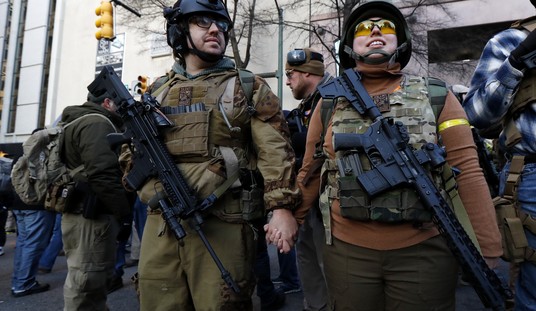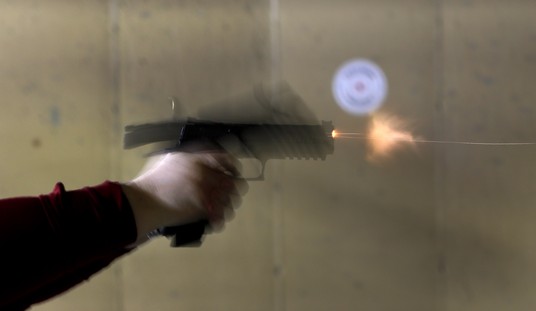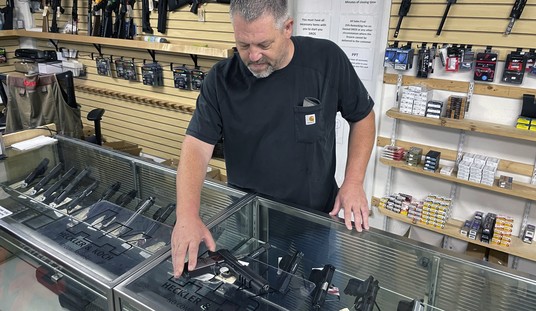Gun companies are pretty limited in their marketing opportunities.
While gun websites and outdoor programming won’t hesitate to run advertising for gun companies, you’re not exactly going to see an ad for Smith & Wesson during your Sunday afternoon football game.
Likewise, there’s zero chance of your kid seeing an ad for the JR-15 on Cartoon Network or the Disney Channel.
Regardless, there are those who think gun companies’ marketing is a massive problem. Several states, for example, have passed measures restricting how and to whom these companies can market to.
Now, Illinois has formally joined their ranks.
Illinois Gov. J.B. Pritzker has signed a law banning firearms advertising that officials determine produces a public safety threat or appeals to children, militants or others who might later use the weapons illegally — opening the door for lawsuits against firearms manufacturers or distributors.
Pritzker on Saturday signed the Firearm Industry Responsibility Act, making Illinois the eighth state to approve legislation that rolls back legal protections for firearms manufacturers or distributors. The legislation comes after the deadliest six months of mass killings recorded in the United States since at least 2006 — all but one of which involved guns.
Pritzker signed the bill alongside lawmakers and gun control advocates at Gun Sense University, an annual training conference of more than 2,000 Moms Demand Action and Students Demand Action volunteers and survivors, hosted by Everytown for Gun Safety.
“We hold opioid manufacturers accountable. Vaping companies accountable. Predatory lenders accountable. Gun manufacturers shouldn’t get to hide from the law — and now, they won’t be able to,” Pritzker said in a statement.
All of those others use deceptive practices; pretending what they’re offering is something other than what it is. Opioid manufacturers weren’t hammered because they produced an addictive drug. They got in trouble because they acted like it wasn’t addictive, thus encouraging doctors to prescribe it more often than they otherwise would have, creating a problem.
Likewise, a lot of vaping companies presented their products as safe when it turned out they weren’t. Predatory lenders like to pretend they’re doing the consumer a favor, all while basically trying to screw them over.
Gun companies, on the other hand, have never pretended their goods weren’t dangerous. In fact, a gun that isn’t dangerous isn’t much of a firearm.
Then there’s this idea that they’re marketing to kids and militants, among others.
First, kids can’t lawfully buy guns and there’s no evidence that the gun companies are circumventing those restrictions. They’re not actually marketing to kids. At worst, their marketing to their parents.
Yet the problem is that these marketing bans also foul up youth shooting publications and efforts. They’re generally written so broadly that even encouraging kids to shoot can fall under the ban, which sure seems like a First Amendment violation if you ask me.
As for marketing to militants, that’s troubling as well.
After all, many of us have guns for a variety of reasons, but some of the things that appeal to many gun buyers–including any use by the military–are likely to also appeal to someone who is legitimately militant. As such, a ban like this is going to make it very difficult to market some firearms to the average gun buyer.
It’s just a matter of time before the courts have to figure this one out, but companies have to be able to create marketing campaigns, and these laws make that nearly impossible, which is why the NSSF is now suing Illinois in federal court over the new law.
.@NSSF’s lawyers going to federal court this morning to file legal challenge to this unconstitutional law RT Illinois governor signs ban on firearms advertising allegedly marketed to kids and militants – The Washington Post https://t.co/uY357P5Oy5
— Larry Keane (@lkeane) August 14, 2023
Cam will have more on the specifics of the lawsuit in an upcoming post, but hopefully it won’t be long before the courts throw out the state’s newest infringement on our fundamental rights.









Join the conversation as a VIP Member